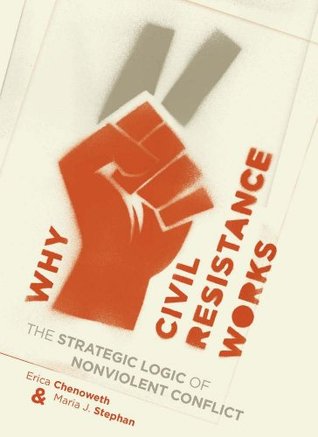More on this book
Kindle Notes & Highlights
Read between
February 16 - March 6, 2018
On the whole, physical, informational, commitment, and moral considerations tend to give nonviolent campaigns an advantage when it comes to mobilizing participants, which reinforces the strategic benefits to participation.
Security-force defections and the number of participants are much less important in predicting the success of violent insurgencies. Instead, the presence of a foreign state sponsor is the main determinant of success. For violent insurgencies, neither international sanctions nor violent crackdowns have systematic effects in determining success or failure, though they may matter in individual cases. The presence of a foreign state sponsor increases the likelihood of success by about 15 percent, controlling for other factors.
Although violent insurgencies captured power in some cases, the human costs were very high, with millions of casualties. Moreover, the conditions in these countries after the conflict ended have been overwhelmingly more repressive than in transitions driven by nonviolent civic pressure.


